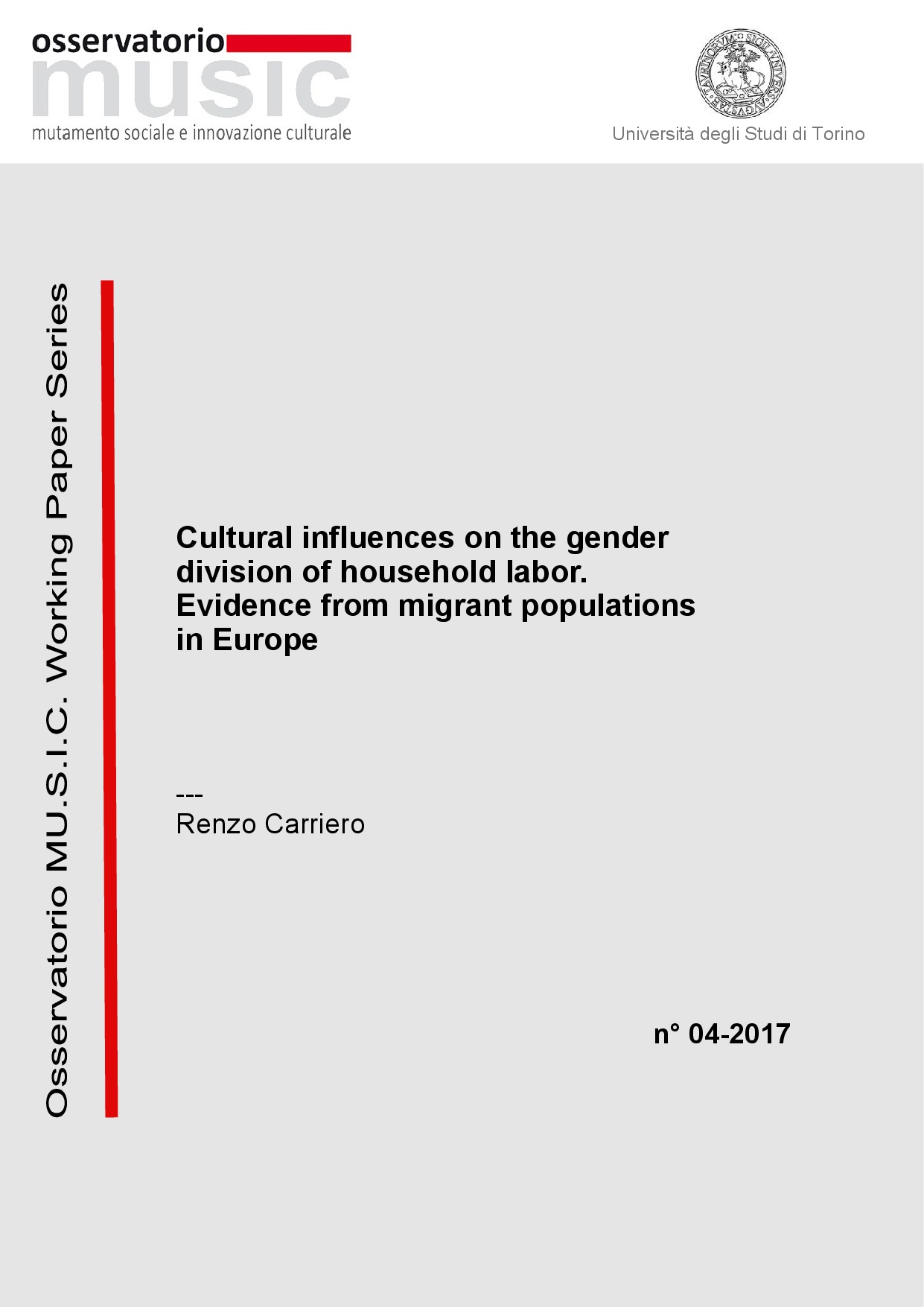Cultural influences on the gender division of household labor. Evidence from migrant populations in Europe.
Resumen
Does culture influence the gender division of household labor? Many family scholars are convinced that this is the case, but they can rarely make robust causal inferences because regressions of individual behavioral data on attitudes data (the most frequently performed kind of analysis) suffer from spuriousness and reverse causation problems.
In this contribution I address this issue by applying a method derived from epidemiology and recently imported in economics (Fernandez 2011) and sociology (Polavieja 2015). Culture is measured at the countries of origin among natives and then imputed to immigrants of those cultures observed in different destination countries. Immigrants are assumed to have inherited at least in part the cultural traits of their national origin. In this way their behaviors, by construction, cannot affect their culture.
For this analysis, I used ESS data (round 5) on migrant families and their division of household labor matched with EVS data (wave 4) on cultural traits observed at their countries of origin (N = about 2000 immigrants resident in 28 host countries, coming from 43 different European origins). I found that several cultural traits, that are expressions of traditional gender role arrangements, significantly and substantially affect the division of household labor of migrants.
Keywords: Epidemiological Approach, Housework, Ancestry Culture, Instrumental Variable Regression



